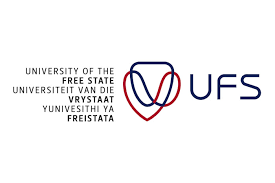University of the Free State: UFS and DESTEA partnering to promote astro-tourism in the Free State
Just over 11 years ago, the University of the Free State (UFS), the Mangaung Metro Municipality, and the Department of Small Business Development, Tourism and Environmental Affairs (DESTEA) signed a Memorandum of Understanding that focused on the development and establishment of the Naval Hill Planetarium. In 2016, the partnership was extended to include the establishment of a facility for environmental education adjacent to the planetarium. Thus, the site on Naval Hill, Bloemfontein is now the Centre for Earth and Space.
Recently, colleagues from the UFS and DESTEA, as well as Free State tourism entrepreneurs, gathered at the planetarium and Boyden Observatory to discuss the next step in this partnership – a collaboration to bring astro-tourism to the Free State.
Astro-tourism facilities
Tourism Registrar at DESTEA, Motheo Leeuw, said in his welcome address that,in order to increase the number of visitors to the Free State, it is important to work together. “We are creating a new product, that of astro-tourism,” he stated, and requested the tour guides who attended the event to develop an innovative new product for their market.
Speaking on behalf of the UFS, Dr Molapo Qhobela, Vice-Rector: Institutional Change, Strategic Partnerships and Societal Impact, stated that astro-tourism holds enormous potential for this country. He said the UFS is excited to be a partner in this initiative.
Dr Qhobela said he believes the beauty of science can be used to promote astro-tourism. He echoed Leeuw’s sentiment, stating that it is only through partnerships that astro-tourism will become a reality. “If we want to drive astro-tourism, we need to find creative ways to connect with each other,” he stated.
“We must work together to make our home, Bloemfontein, a better place,” he said.
A taste of astro-tourism
About 30 delegates, including the UFS, DESTEA, military representatives, and tour guides from Bloemfontein and Clarence, gained first-hand experience of the potential of astro-tourism. They attended a full-dome pre-rendered astronomy show and a presentation on the night sky in the Naval Hill Planetarium, where images were projected onto the planetarium dome, resulting in an immersive experience of the wonder of the universe. The tour guides proceeded on a game drive in the Franklin Game Reserve on Naval Hill.
Later in the afternoon – after enjoying a sunset view of the environment at the Boyden Observatory – guests were introduced to the observatory, including its telescopes and the Astronomy Museum. Prof Matie Hoffman, Dr Mart-Mari Duvehage, and Dawid van Jaarsveldt from the Department of Physics at the UFS, were on hand to conduct the tour of the observatory, and Bishop Billyboy Ramahlele, Director of Community Engagement, hosted the guests.
Tony Horn, a tour guide from Bush Junkies Adventure Safaris – one of the guests at the event – is optimistic about the potential of this initiative. He said he will bring visitors to Boyden and the planetarium to experience the attractions.
The Two-Observatories Project
The Boyden Observatory and the Naval Hill Planetarium are known as the Two-Observatories Project, which will be the focus of astro-tourism in the Free State. Focus areas of the Two Observatories Project are science communication and education, research, astronomy heritage, and the environment. The project therefore has great potential to attract tourists.
According to Prof Hoffman, the two observatories work in synergy to educate and inform citizens about the natural sciences. They are also important for the display of and communication about South Africa’s astronomical heritage.
In addition to being an active optical research site, Boyden Observatory is ideal for public lectures and star-gazing events. Educational programmes, including observations with telescopes, are also presented at the observatory. An astronomy museum is a major attraction at Boyden.
The Naval Hill Planetarium, also a good venue for public lectures and concerts, offers planetarium shows, including full-dome films. The site also offers a large hall that is primarily used for environmental education. These facilities operate under the banner of the Free State Centre for Earth and Space.

